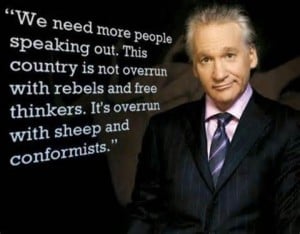How do women of faith fight the rape culture?
Picture yourself and five of your girlfriends sitting around the table talking. Visualize the details of their faces, listen to their laughs, the familiarity of their voices. Hear each one talk about her career, her relationships, her dreams for her future.
Now realize that one has been, or will be, raped. There is one who will leave that table and be attacked in the coming months or years. Or there is one hiding her story, never daring to utter it even to those closest to her. Or, it could be you. I am one, too.
One out of every six women in “the land of the free” will be raped in their lifetimes. Every 2 minutes someone is sexually assaulted in our country, but over half will not report it due to intimidation and self-doubt. And 97% of rapists will never spend a day in jail.
It’s not just “raving lunatics” or “hardened criminals” who take our bodies against our will; two-thirds of rapes are committed by someone known to the victim. This supports an exploration of rape as a deeply-ingrained, historical cultural phenomenon indicative of how men (and women) are systemically socialized to understand female bodies as available objects for visual or physical consumption. Women are often presented in advertising and talked about in media by reference of our parts. Parts alone do not seem human. [See MissRepresentation.org.]
Another place that women aren’t viewed as whole, fully human beings is the Bible. Christian women have found various ways to try and reconcile that with our faith today, but the fact remains that it is still mostly men who are given the means and the microphone to decide and speak for what is “biblical.” And we all know that calling something “biblical” is meant to enforce it as the “true version” of reality, despite abundant contradictions. Especially in election season, the Bible becomes the authority for many politicians and voters on issues and policies.
The war on women that emerged during the Republican primaries resurrected the old notion that women cannot be trusted to make decisions about our own bodies and since we hold the power of procreation, we must be controlled by the restraint of men (women are 51% of the population but only 17% of Congress). This political rhetoric amplified by media personalities like Rush Limbaugh perpetuates rape culture.
So, despite whatever equality American women have achieved, the reality of the rape culture is not something we can sheepishly shift to some other area of the world we consider remote, tribal, or religiously and socially antiquated. This barbarism is as American as apple pie. One interesting difference is that the privilege of capitalism can make perpetuating the rape culture lucrative.
It’s a hot topic that Daniel Tosh, a 38-year-old entertainer with a baby face and a substantial cult following, gets paid big bucks to stand up in packed venues and state unequivocally that the act of rape is hilarious, deadpanning how funny it would be if a woman sitting in the audience got gang-raped right then and there. (Need the story? What about free speech and when/how making light of horrific brutality might be appropriate?) Reportedly, Tosh’s net worth as a stand-up comedian and host of his own show on Comedy Central is over $1.5 million.
I was not surprised when I heard about the latest incident. I had considered blogging about my own experience in Atlantic City last summer, when I went with friends to hear an unfamiliar comedian, Tosh. It is apparently his regular schtick to do a long segment on rape, because something similar happened. Tosh asked the audience “what do you want to talk about?” Someone in the audience yelled out “rape!” I remember thinking, who would actually spontaneously think of rape when asked what we want a comedian to talk about? (Now I realize he must plant someone in the audience.) My heart dropped as the man on stage with the means, the microphone, and a captive audience launched into a series of misogynistic rape jokes.
These were not the jokes that use brilliant, deft humor to point out the ludicrous nature of rape culture. Tosh did not provide a cathartic laugh by throwing jabs at the deranged pathology of people who rape. Instead, he used unabashed hate speech that linked characteristics and behaviors of women to the consequence of rape. When Michael Richards (Seinfeld’s “Kramer”) went on a racist rampage of “jokes” during a stand-up gig in 2006, his career and reputation suffered. But society is still generous with sexist, gender-based intimidation and oppression. Almost all of Tosh’s peers have supported him.
The crowd response the night I saw Tosh was weak; nonetheless, the half-hearted laughs and applause made me sick to my stomach. I felt like a spotlight might as well shine on me with a booming voice, “you deserved it, whiny bitch!” to jeers and cheers (Tosh used the term bitch a lot that night when discussing women). I imagine that 1 in 6 of his hundreds of audience members felt the same, but didn’t want to be accused of “not being able to take a joke.” Clearly Tosh has never spent the night hunched over in searing pain, bawling and confused, with blood running down his legs in a 24-hour Waffle House because he couldn’t think of anywhere else to go where people wouldn’t question his story and assume he was asking for it.
But I have to ask, does the “Biblical God” sound much different in terms of respect for women and our bodies? What might Christian women do about the rape culture, when the Bible is filled with texts that excuse and even encourage rape [Deuteronomy 21 and 22, Exodus 21, Numbers 31, Genesis 34, II Samuel 13, etc.] How do we interact with people who take the Bible literally about the presumed “characteristics and behaviors” of women that supposedly make us deserve to be silent and submissive (i.e., 1 Timothy 2:11-15) and the mythical concept of the “biblical family” and apply it to the modern American culture at large to the peril of women?
I’ll admit, looking to the Gospel stories makes it difficult because Jesus never says anything definitive, though people try hard to squeeze little nuances out of him with Mary Magdalene or the report of the Samaritan woman at the well. Does it sometimes feel like no one in the Bible has your back? Yeah, me too. So instead, I look to the infamous biblical adulteress. Yes, indeed! Let’s look to the lady who knows how we feel.
The “adulteress” of John 8:1-11 is portrayed in the author’s ancient, patriarchal context as a sinful woman “caught in the act of adultery,” even though we are not told the actual circumstances of the situation, and the man involved is not called out as wrong. Besides that she is a literary device the author uses to make a theological point, we can also look back at her character as a woman forced by cultural and political minority status – and probable poverty – to offer herself to whatever man would take her in exchange for food, shelter, protection. (Consider Ruth’s highly regarded big move on Boaz; there was no alternative way to provide for herself or achieve general social standing by producing a child, without him.)
Not only was it a culture in which men never considered a woman’s consent to anything, the status of women created desperate sub-humans who had to bank on being lovely enough or have a wealthy enough father to warrant being purchased, traded, arranged for marriage, or otherwise taken in to the household of a man (often as one of many wives, concubines, slaves) in order to survive. Of course in the Bible, she is simply reduced to some “slut” who had a lustful “affair” and she alone is called to fault. (Sound familiar?)
This is where we can learn from the Bible, in the things that ring terribly true in our heart of hearts, in the experiences of other women we can somehow even remotely relate to, in the words of the texts that sting, in the righteous anger it stirs.
And maybe in this: Jesus asks the woman what she thinks. He never asks her if she actually did anything wrong, but he wants to know what she saw in what just transpired. You see, Jesus told the mob who wanted to stone her for adultery according the law, “All right, but let the one who has never sinned throw the first stone!” One by one, the suddenly self-reflective mob turns and leaves. Jesus then turns to the woman and says, “Where are your accusers? Didn’t even one of them condemn you?” The woman speaks up directly to Jesus, “no.”
In other words, Jesus wants to know: Did you see what happened when I exposed the reality, asked the tough questions, called out the culture for its hypocrisy and sickness? Now go on your way, and remember what you saw, remember what we just did together. Sin no more, because sin is a chasm of the mind and heart between you and I, and I came to show you an important new reality. Go and live as if it is happening, this new way of human being toward one another, for that is the good news I came to tell you. You are a witness; spread the light.
Women of faith are called to think deeply about our experiences, to see the culture in all its violent inequities, to call it like we see it without fear, to bear witness to another way. Don’t submit to a circle of stone throwers. Tell your stories, use your voice, know that your perspective matters. Of course things won’t change with the speed and clean ending of a parable, but systemic change takes all of us saying “no” over and over and over to the hell that is the rape culture. Even when it is disguised as jokes. Even when it is disguised as faith.
This week’s prayer: I will claim my wholeness and my humanity, and I will not be ashamed. I might not be popular for pointing out injustice where others find entertainment or comfort, but I will not rest until we live in a world without rape.
[For added inspiration, see Andrea Dworkin’s I Want a 24-Hour Truce in Which There is No Rape.]















